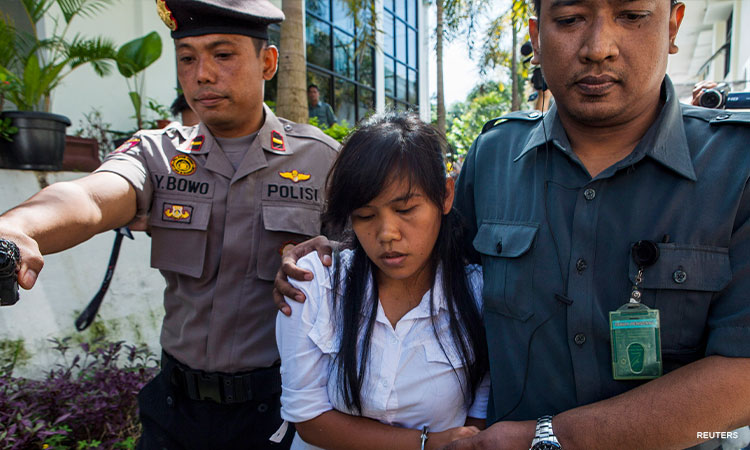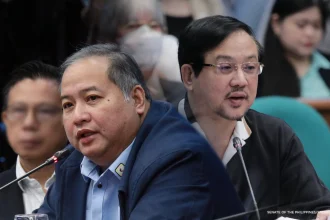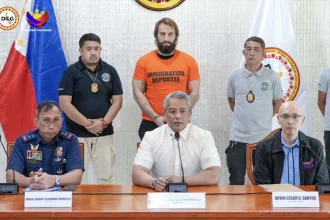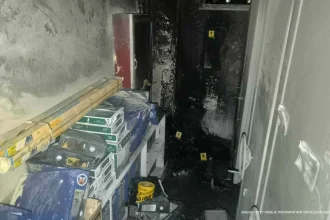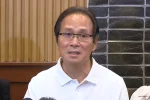
Metro Manila, Philippines — President Ferdinand Marcos Jr. expressed his gratitude to the past and present leadership of the Indonesian government for considering the Philippines’ requests regarding the case of convicted Filipina worker Mary Jane Veloso.
In an interview with reporters in Nueva Ecija, Marcos shared that since he assumed office, his administration has been working towards commuting Veloso’s death sentence to life imprisonment.
“Noong nangyari ‘yun, when we were able to achieve that we continue to work with them. It was still with the Widodo government at that time,” Marcos said on Thursday, Nov. 21.
[Translation: When that happened, when we were able to achieve that, we continued working with them. It was still under President Widodo’s government at that time.]
“Mabuti na lang that our relations with Indonesia, our relations with then-President Widodo and all of these people, together with our relations now with the new President, President Prabowo (Subianto), dahil maganda naman ang ating relasyon, nakahanap sila — gumawa sila ng paraan, this is the first time they did this,” he added.
[Translation: It’s fortunate that our relations with Indonesia, with then-President Widodo and all of these people, and now with the new President, President Prabowo, are good. They found a way – they made a way. This is the first time they did this.]
Marcos further explained that the Indonesian government had expressed it had no intention of executing Veloso.
“But as I said, we have been working on this for — all the previous presidents, hindi lang ako. Ten years na ito, 10 years na ito. Pero ang nagawa natin napa-commute natin ‘yung sintensya niya from death sentence to life imprisonment,” he said.
[Translation: But as I said, we have been working on this for — all the previous presidents, not just me. It’s been 10 years, 10 years. But what we’ve done is we got her sentence commuted from death to life imprisonment.]
Marcos also reiterated that Veloso would soon return to the Philippines.
Clemency for Veloso?
Marcos said all options are being considered should Veloso’s transfer be finalized, including the possibility of granting clemency.
“We will see. Hindi pa maliwanag kung ano ba talaga ang…How… This is the first time this is happening. So, that — everything is on the table,” Marcos said.
The Indonesian government clarified that Veloso would remain in detention but could be transferred to the Philippines subject to conditions.
In a statement, Indonesian Coordinating Minister for Law, Human Rights, Immigration, and Corrections Yusril Ihza Mahendra said the transfer process, under Jakarta’s prisoner transfer policy, is not a release from prison.
He added that if the Philippines meets the conditions, Veloso’s transfer could take place as early as December.
Yusril listed three requirements for Veloso’s transfer:
+ The Philippines must recognize and respect the Indonesian court’s final verdict sentencing Veloso to death for narcotics smuggling.
+ Veloso must serve the remainder of her sentence in the Philippines in accordance with the Indonesian court’s decision.
+ The Philippine government must bear the costs of Veloso’s transfer and security during the process.
“Once she is returned, the authority over the prisoner shifts to the Philippines, including decisions regarding leniency or sentence reductions,” Yusril added.
Yusril also mentioned that any changes to Veloso’s sentence, such as a pardon or commutation, would be up to President Marcos, noting that the Philippines has abolished the death penalty.
“It is possible that President Marcos will grant pardon and change her sentence to life imprisonment, considering that the death penalty has been abolished in the Philippine criminal code, so this step is within the full authority of the President of the Philippines,” he said.
Veloso’s case
Veloso, arrested in 2010 at Yogyakarta Airport with 2.6 kilograms of heroin in her luggage, has consistently maintained her innocence, claiming she was duped by a recruiter. Her case garnered international attention, with her 2015 execution delayed following appeals from the Philippine government and global public outcry.
If completed, Veloso’s transfer would mark a significant development in the years-long diplomatic efforts to resolve her case.



